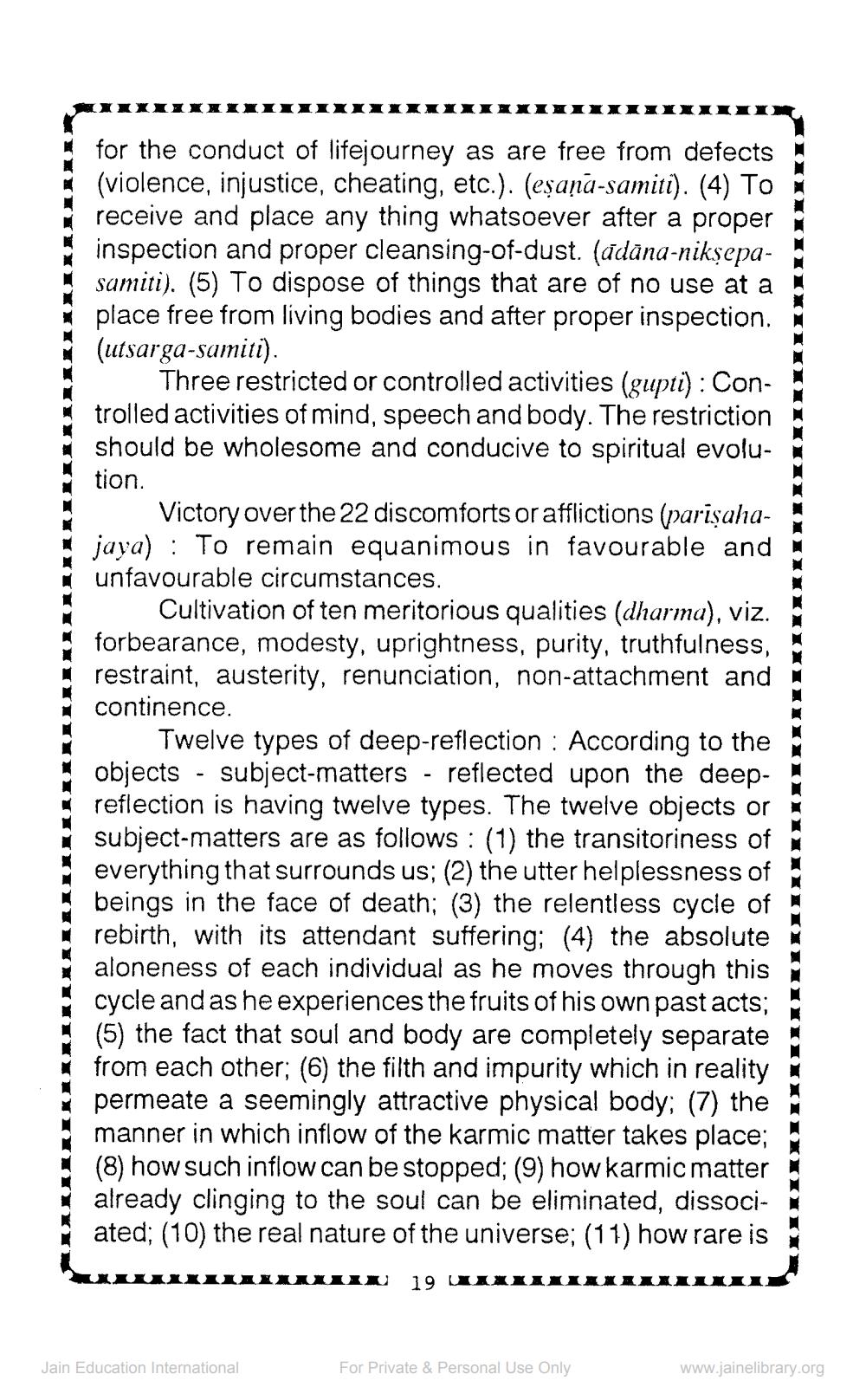________________
for the conduct of lifejourney as are free from defects (violence, injustice, cheating, etc.). (eṣaṇa-samiti). (4) To receive and place any thing whatsoever after a proper inspection and proper cleansing-of-dust. (ādāna-nikṣepasamiti). (5) To dispose of things that are of no use at a place free from living bodies and after proper inspection. (utsarga-samiti).
Three restricted or controlled activities (gupti): Controlled activities of mind, speech and body. The restriction should be wholesome and conducive to spiritual evolution.
Victory over the 22 discomforts or afflictions (parişahajaya) To remain equanimous in favourable and unfavourable circumstances.
Cultivation of ten meritorious qualities (dharma), viz. forbearance, modesty, uprightness, purity, truthfulness, restraint, austerity, renunciation, non-attachment and continence.
Twelve types of deep-reflection: According to the objects subject-matters reflected upon the deepreflection is having twelve types. The twelve objects or subject-matters are as follows: (1) the transitoriness of everything that surrounds us; (2) the utter helplessness of beings in the face of death; (3) the relentless cycle of rebirth, with its attendant suffering; (4) the absolute aloneness of each individual as he moves through this cycle and as he experiences the fruits of his own past acts; (5) the fact that soul and body are completely separate from each other; (6) the filth and impurity which in reality permeate a seemingly attractive physical body; (7) the manner in which inflow of the karmic matter takes place; (8) how such inflow can be stopped; (9) how karmic matter already clinging to the soul can be eliminated, dissociated; (10) the real nature of the universe; (11) how rare is
Jain Education International
U
19
For Private & Personal Use Only
www.jainelibrary.org




